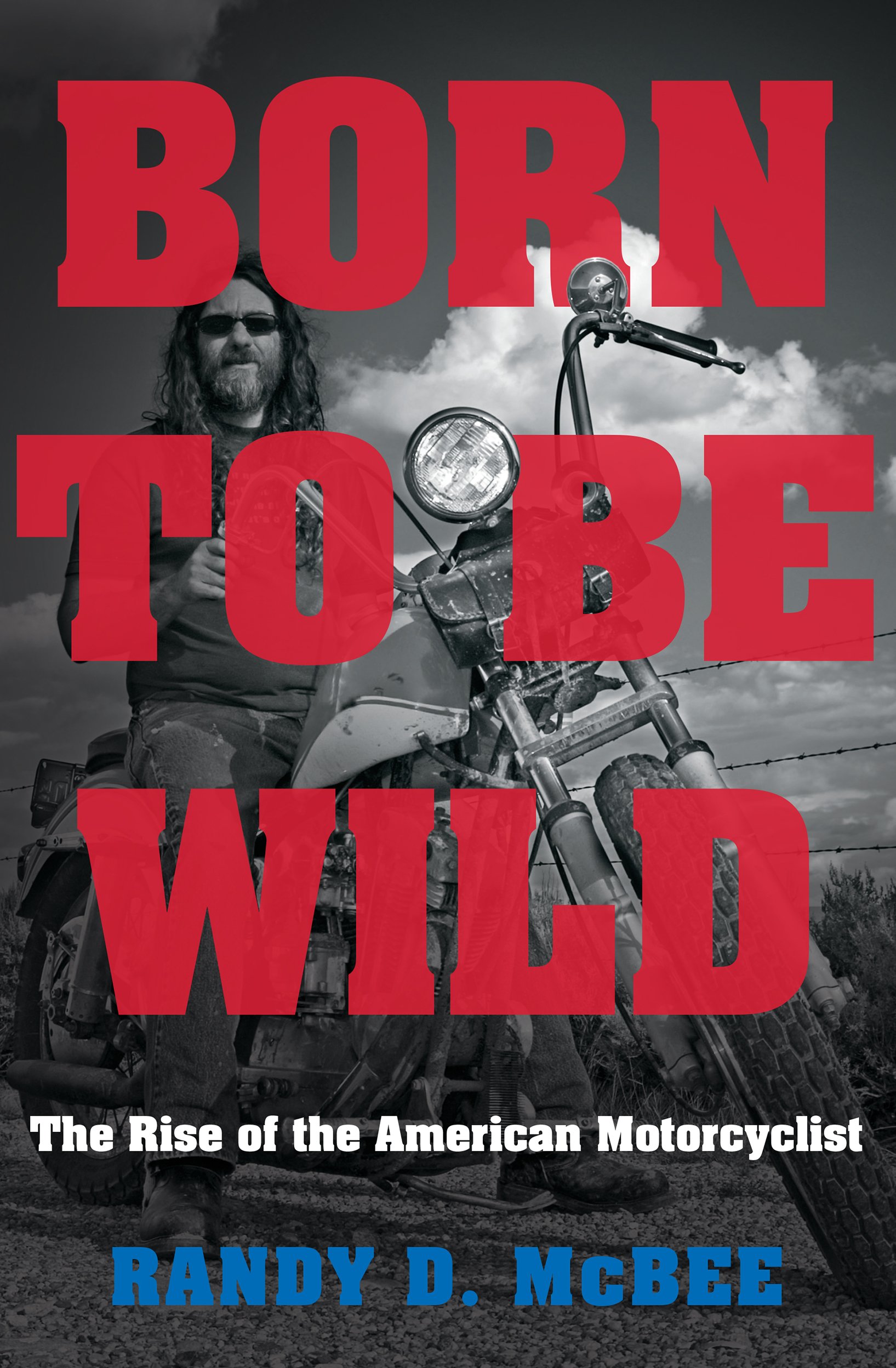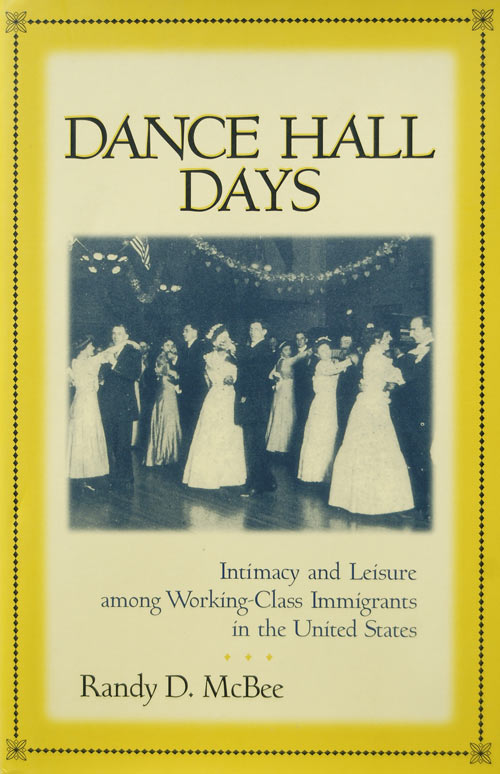Randy McBee
Email: Randy.Mcbee@ttu.edu
Ph.D., University of Missouri
Dr. McBee's research focuses primarily on the history of the working class in the United States throughout the twentieth century. His work pays particular attention to issues of class, race, and gender and the broader intersections between places of work and leisure. His first book, Dance Hall Days: Intimacy and Leisure Among Working-Class Immigrants in the United States (New York University Press, 2000), explored the relationship between the rise of commercial leisure in the late nineteenth and early twentieth centuries, the influx of working-class immigrants from southern and eastern Europe, and male culture. His new book, Born To Be Wild: The Rise of the American Motorcyclist (University of North Carolina Press, 2015) explores the history of motorcyclists and the rise of the "biker" since the Hollister Rally in 1947. It examines the motorcyclist's largely working-class roots and the rise of the "outlaw" motorcyclist in the 1940s and 1950s through the development of the motorcycle rights movement of the 1960s and 1970s and the emergence of the rich urban biker of the 1980-1990s. He considers how that image and that movement shaped the public's understanding of motorcycling and motorcyclists and their larger impact on American culture and politics. He is currently researching the Harley-Davidson Motor Company with a particular focus on technology and globalization and labor and politics.
Dr. McBee teaches a wide range of courses in U.S. urban and social history and recent U.S. history.

Select Publications
Born to Be Wild: The Rise of the American Motorcyclist
 In 1947, 4,000 motorcycle hobbyists converged on Hollister, California. As images
of dissolute bikers graced the pages of newspapers and magazines, the three-day gathering
sparked the growth of a new subculture while also touching off national alarm. In
the years that followed, the stereotypical leather-clad biker emerged in the American
consciousness as a menace to law-abiding motorists and small towns. Yet a few short
decades later, the motorcyclist, once menacing, became mainstream. To understand this
shift, Randy D. McBee narrates the evolution of motorcycle culture since World War
II. Along the way he examines the rebelliousness of early riders of the 1940s and
1950s, riders' increasing connection to violence and the counterculture in the 1960s
and 1970s, the rich urban bikers of the 1990s and 2000s, and the factors that gave
rise to a motorcycle rights movement. McBee's fascinating narrative of motorcycling's
past and present reveals the biker as a crucial character in twentieth-century American
life.
In 1947, 4,000 motorcycle hobbyists converged on Hollister, California. As images
of dissolute bikers graced the pages of newspapers and magazines, the three-day gathering
sparked the growth of a new subculture while also touching off national alarm. In
the years that followed, the stereotypical leather-clad biker emerged in the American
consciousness as a menace to law-abiding motorists and small towns. Yet a few short
decades later, the motorcyclist, once menacing, became mainstream. To understand this
shift, Randy D. McBee narrates the evolution of motorcycle culture since World War
II. Along the way he examines the rebelliousness of early riders of the 1940s and
1950s, riders' increasing connection to violence and the counterculture in the 1960s
and 1970s, the rich urban bikers of the 1990s and 2000s, and the factors that gave
rise to a motorcycle rights movement. McBee's fascinating narrative of motorcycling's
past and present reveals the biker as a crucial character in twentieth-century American
life.
Dance Hall Days: Intimacy and Leisure Among Working-Class Immigrants in the United States
 The rise of commercialized leisure coincided with the arrival of millions of immigrants
to America's cities. Conflict was inevitable as older generations attempted to preserve
their traditions, values, and ethnic identities, while the young sought out the cheap
amusements and sexual freedom which the urban landscape offered. At immigrant picnics,
social clubs, and urban dance halls, Randy McBee discovers distinct and highly contested
gender lines, proving that the battle between the ages was also one between the sexes.
Free from their parents and their strict rules governing sexual conduct, working women
took advantage of their time in dance halls to challenge conventional gender norms.
They routinely passed certain men over for dances, refused escorts home, and embraced
the sensual and physical side of dance to further accentuate their superior skills
and ability on the dance floor. Most men felt threatened by women's displays of empowerment
and took steps to thwart the changes taking place. Accustomed to street corners, poolrooms,
saloons, and other all-male get-togethers, working men tried to transform the dance
hall into something that resembled these familiar hangouts. McBee also finds that
men frequently abandoned the commercial dance hall for their own clubs, set up in
the basements of tenement flats. In these hangouts, working men established rules
governing intimacy and leisure that allowed them to regulate the behavior of the women
who attended club events. The collective manner in which they behaved not only affected
the organization of commercial leisure but also men and women's struggles with and
against one another to define the meaning of leisure, sexuality, intimacy, and even
masculinity.
The rise of commercialized leisure coincided with the arrival of millions of immigrants
to America's cities. Conflict was inevitable as older generations attempted to preserve
their traditions, values, and ethnic identities, while the young sought out the cheap
amusements and sexual freedom which the urban landscape offered. At immigrant picnics,
social clubs, and urban dance halls, Randy McBee discovers distinct and highly contested
gender lines, proving that the battle between the ages was also one between the sexes.
Free from their parents and their strict rules governing sexual conduct, working women
took advantage of their time in dance halls to challenge conventional gender norms.
They routinely passed certain men over for dances, refused escorts home, and embraced
the sensual and physical side of dance to further accentuate their superior skills
and ability on the dance floor. Most men felt threatened by women's displays of empowerment
and took steps to thwart the changes taking place. Accustomed to street corners, poolrooms,
saloons, and other all-male get-togethers, working men tried to transform the dance
hall into something that resembled these familiar hangouts. McBee also finds that
men frequently abandoned the commercial dance hall for their own clubs, set up in
the basements of tenement flats. In these hangouts, working men established rules
governing intimacy and leisure that allowed them to regulate the behavior of the women
who attended club events. The collective manner in which they behaved not only affected
the organization of commercial leisure but also men and women's struggles with and
against one another to define the meaning of leisure, sexuality, intimacy, and even
masculinity.
Read reviews on Amazon.com.
Department of History
-
Address
Texas Tech University, Box 41013, 3001 15th Street, Humanities (formerly English/Philosophy) 165, Lubbock, TX 79409 -
Phone
806.742.3744 | Fax: 806.742.1060 -
Email
info.history@ttu.edu
